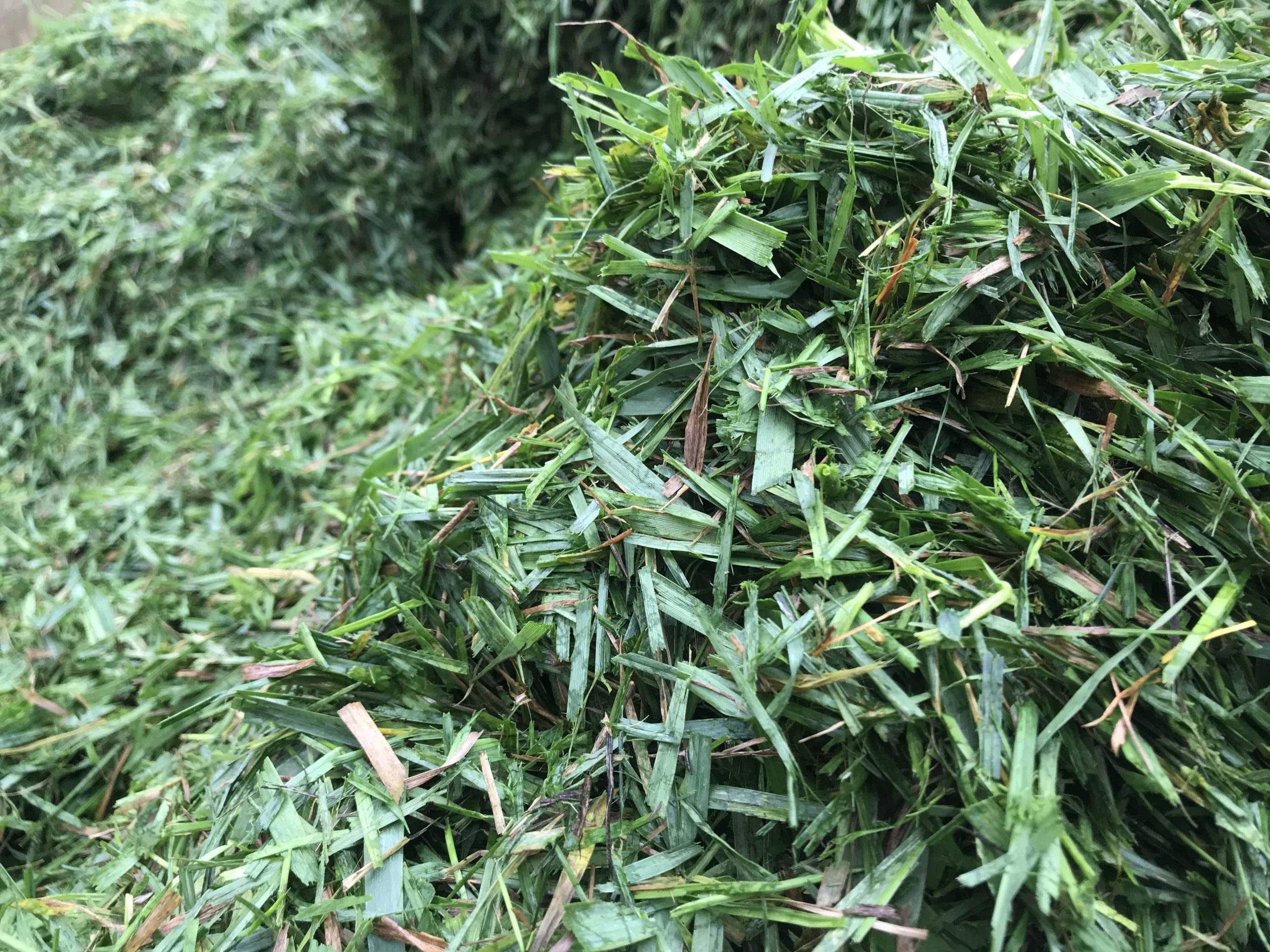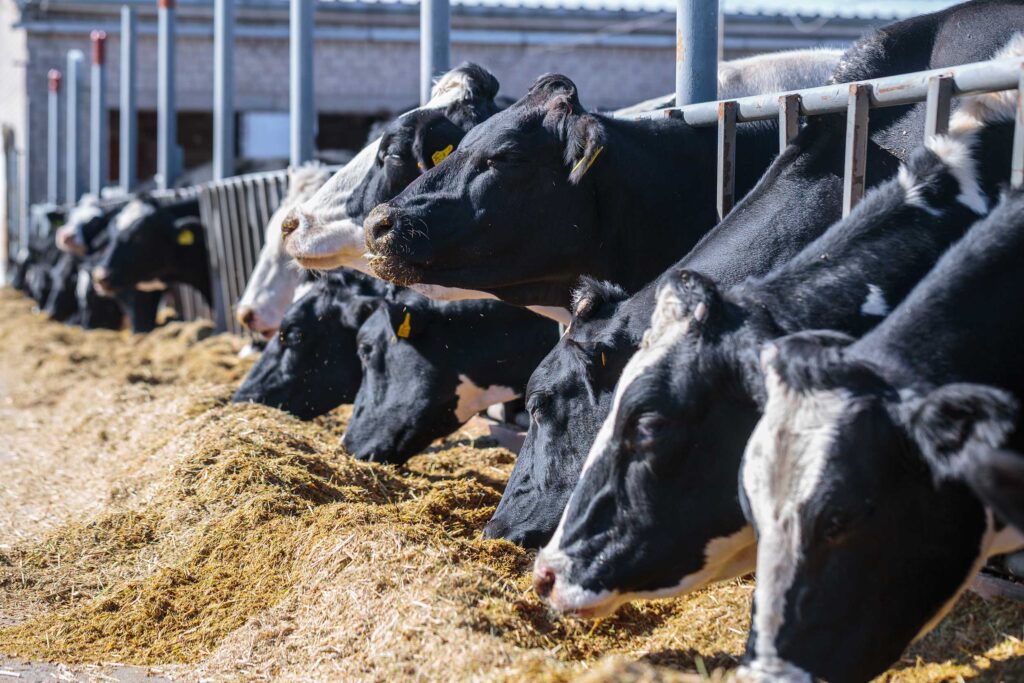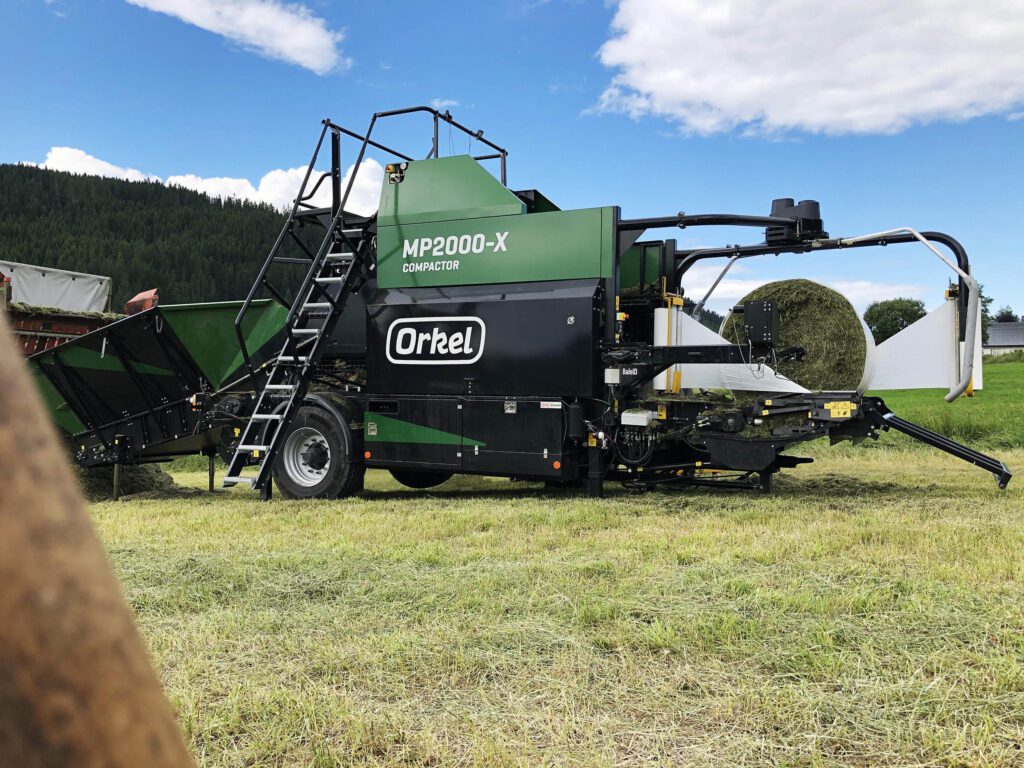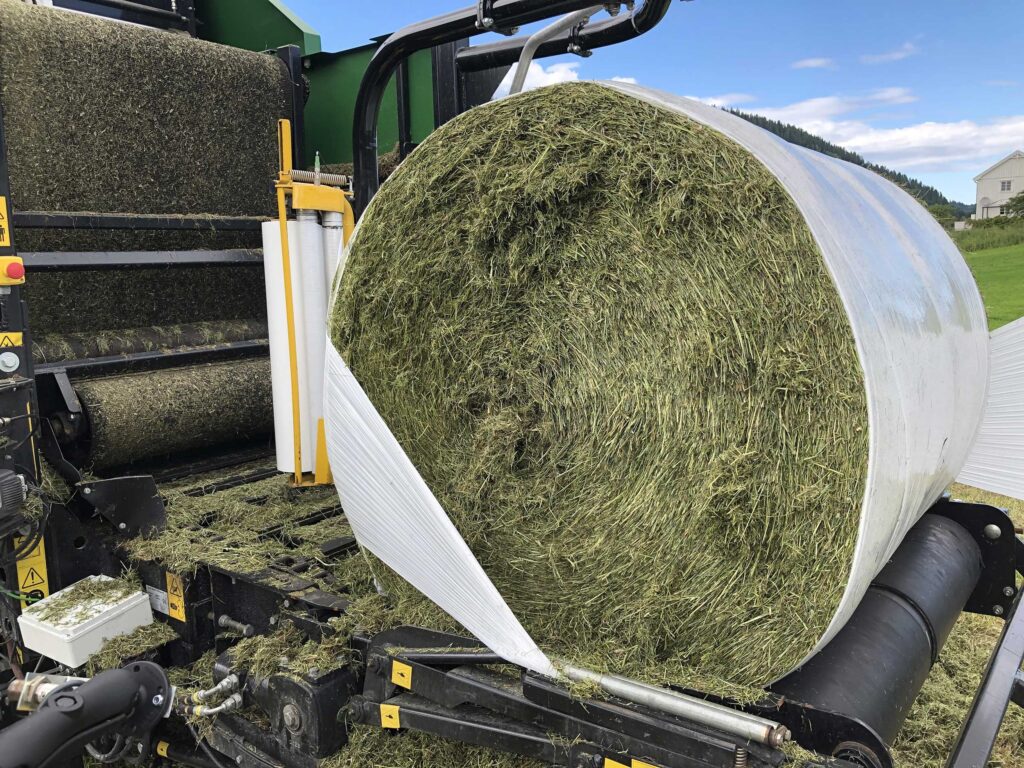The agricultural business is continuously looking for improvements in a competitive environment. Low milk prices motivates search for improvements. Are there opportunities for both reducing cost and at the same time improving productivity? Take a look at the three main benefits with feeding chopped grass baled with an Orkel compactor.
#1: Forage quality
For the dairy and beef industry, forage is a critical resource. Forage represent the main cost of dairy and beef production and the quality of the forage strongly influence animal performance as well as veterinary costs.
The main challenge with conserving forage is oxygen. When forage is exposed to oxygen, several important nutrients are lost and studies show that you can lose up to 30% of the nutrients when conserving forage in a bunker/pit silo. In an environmental aspect, this leads to a corresponding need for cultivated land. It also means that your cattle need more forage to produce the expected amount of milk and meat. Cows are reacting to quality and structure of the forage. Garbage in is garbage out.

Forage in bales are proven to have a loss of only 1-2% of nutritions. This is due to the compaction and tight film wrapping keeping the nutrition within the bale.
A study done by CRV Holland, comparing forage from Orkel bales with bunker silo, showed some interesting figures: Cattle fed with forage from Orkel bales produced 30% more milk with 28% more fat, 22% more protein and 60% lower cell count.
Gold in is gold out.
#2: Higer forage intake
Research institutes world-wide have been looking at the effect of short chopped grass compared to long stemmed grass. The Norwegian research institute Bioforsk, connected to the Norwegian AG university, presents figures showing the effect of feeding chopped forage of 1 inch (2,5 cm) compared to 2,5 inch (7,5 cm).
For the two situations, the forage intake was accordingly 25 lb (11,3 kg) dry matter for the short chopped grass, compared to 22,7 lb (10,2kg) dry matter for the long stemmed grass. This difference in forage intake of 10 %, resulted in an increase of milk yield as well as higher fat content.

#3: Reduced costs
Increased density
An important advantage of baling short chopped grass is increased density. Studies comparing baling of forage of 2-6in chop length to 1in, shows an increased density of approx. 25 – 30 % when baling with the Orkel compactor. 25% higher density means 25% less costs in logistics as well as less cost in film wrapping. It also limits food loss and food waste.
Baling on the farm yard and baling on the field
Die Grüne, an agriculture magazine in Switzerland, did studies in 2019 comparing the costs of grass harvesting. They compared harvest, transport, baling and operator costs in these two cases:
- Baling grass with normal stender length on the field with a traditional combi grass baler
- Using a harvester and baling short chopped grass with the Orkel compactor
The results:
- Cost per bale with a combi baler: EUR 45,16
- Cost per bale with harvester+compactor: EUR 34,92
Not only does the harvester+compactor provide you lower production costs, the forage quality is also improved due to higher density. Your cattle will get more nutrition and produce more milk and meat making you more profitable. Read about the forage producer who increased their market share.


Benefits of baling with an Orkel compactor:
- 25-30% higher density
Compared to conserving your forage in a bunker or tower silo, the density will be up to 30% higher. High density means less oxygen and better forage quality - High forage quality
Tight film wrapping and high density makes sure the nutrients are kept within the bale. You avoid big nutrient losses in your forage. - Easy logistics
Forage in bales is easy to handle. The bales can be stored anywhere, and up to 36 months. - Easy market access
Forage in unit packages is easy to buy and sell. - High animal performance
Forage in bales is more appetizing to your cattle making them eat more and produce more milk. - Less use of film wrapping
Higher density compared to a traditional grass baler, means fewer and heavier bales and less use of film wrapping. This is good for the environment and your profit!
You are welcome to contact us on sales@orkel.no for more information about our technology and how it can make you more profitable.
Wishing you a good harvest!